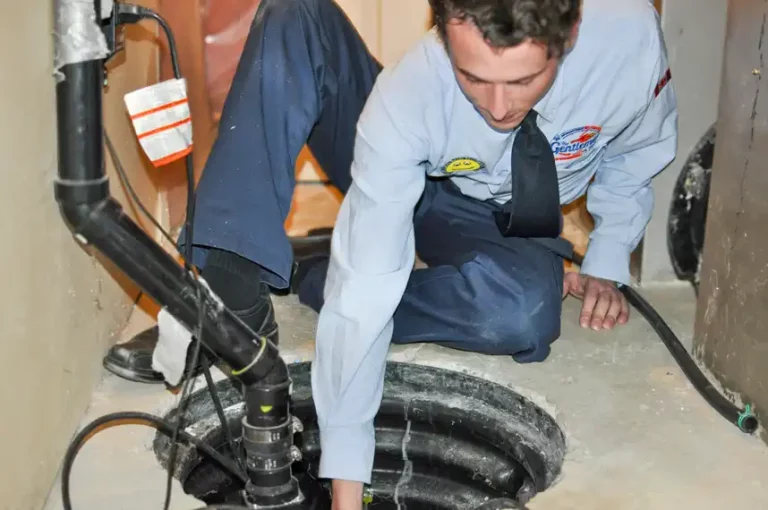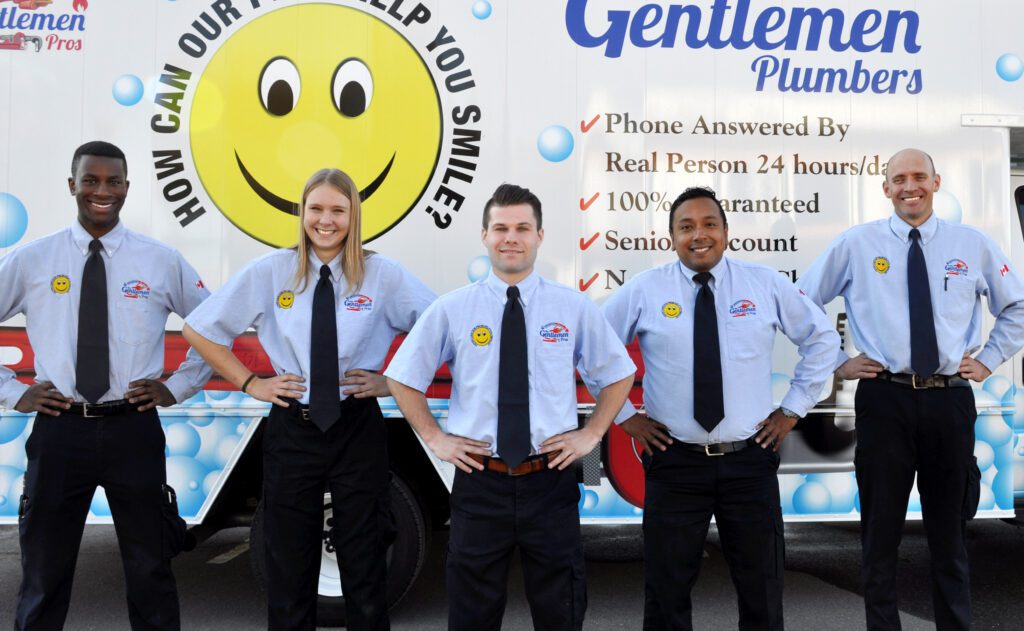
Same Day Service
Since 1992
Call The Gentleman Pros Now!
(403) 879-1759

Are you familiar with sump pumps?
A sump is an important part in your line of defense against unwanted water in your basement. You know … flooding and all the stressful things that come with it.
The unwanted water that enters your house is either coming from below (a rising water table) or from above (usually a storm event). Regardless of the origin of the water, a sump pump can help.
And we can help you!

If you already have a sump pump and it either isn’t working or you want an experienced person to take a look at it, we can do that too.
Our knowledgeable technicians are well versed in pumps and we can help you with all your sump pump needs.
So give us a call! Our number is (403) 770-9075 and our helpful customer associates are waiting to assist you.
As mentioned earlier, a pump is part of your line of defence against flooding and water seepage in your basement. It is part of your house’s foundation drainage system. Other parts of the foundation drainage system can include weeping tile, splash pads (or mats), a foundation standpipe, and sump liner.
A sump is a pit, hollow, or basin that collects water in a basement or at the bottom of a mine. In your house, a pump is located in your basement or crawl space at its lowest point. It sits in a basin and removes excess water from the basin and deposits it outside away from the foundation. It helps limit damage to your home from flooding or seepage.
A sump pump automatically starts when water reaches a certain level in the basin. It pumps the excess water outside through the discharge pipe (also called the effluent line) to a drainage field. The discharge pipe has a check (non-return) valve to make sure the water doesn’t flow back into your basement.
Make sure your pump is the right size for your needs.
You should know the capacity of your sump pump (how much water it can pump) and the height and distance the water will need to travel out of the basin and to the outside (this is called the pump head).
In their The Homeowner’s Guide to Lot Grading and Draining, the City of Edmonton recommends
The experts at The Gentlemen Pros can make recommendations on the size sump pump you need.
In addition to the size of your sump pump, you need to think about the size of your sump basin (pit). The size of your sump basin (pit) impacts how well your sump pump will operate.
For your pump to work at its most efficient level, it needs to operate at its optimal flow rate, based on the capacity of the sump basin (pit). If the basin is the wrong size, it will impact how efficiently your pump operates. For example, if your pit is too small, it will fill up too quickly and regularly making the pump cycle on and off more often than it would in a properly sized pit. This can shorten the life of the pump.
The National Building Code – 2019 Alberta Edition, outlines the minimum requirements for a sump pit in sentence 9.14.5.2.(1). They are
The Building Code also requires the sump pit to have a childproof cover that is airtight (Sentence 9.14.5.2.(2)) with weatherstripping around its edge to stop air leakage. (Sentence 9.25.3.3.(7).
The worst time to find out your pump isn’t working properly is when you need it. To avoid this check on your pump at least once a year. Your owner manual will outline the maintenance you need to do to your pump and how often.
At the bare minimum, you will need to clear it and the basin of any loose debris such as leaves and dirt that could clog your sump pump. You should also ensure there is back up power to your sump pump. If applicable, have a dedicated circuit for the sump pump with the operating switch above the high water level.
Other steps you can take are to have a back up battery operated sump pump and to install a sump pump alarm which will go off when the water gets too high.
The City of Calgary has recommendations and regulations in several bylaws and guides on the usage of pumps and lot drainage in the city.
Below is a summary of some of the information. For more information please go directly to the City’s website. And if you live elsewhere, please check with your local government for the recommendations and regulations in your area.
Foundation drainage, which includes water from a pump, must be discharged to the surface or into the City of Calgary’s Storm System. It cannot be deposited into the City’s Sanitary Sewer System
If discharged to the surface, the water must move away from the building, through absorbent landscaped areas to the front or the back of the house, to the street or lane, into the City’s Storm System, or into a swale (a type of surface drain consisting of a broad shallow spot that slows and controls the flow of water so it doesn’t puddle or pool on the surface). Don’t allow the water to be discharged directly onto hard surfaces (i.e., sidewalk, driveway). It should be absorbed by a landscaped area first. If it is discharged directly onto a sidewalk or similar surface, the water becomes a very slippery hazard when it freezes.
Sump pump discharge must occur away from the building’s foundation, in a manner that the water doesn’t end up back where it came from or in a neighbor’s property. It also cannot be discharged in areas that cause problems on public property.
The City has specific rules when building (and this includes redevelopment) within the Flood Fringe, Overland Floodway, or Flood Area. Please check the City’s flood information website to see if your property is subject to these additional regulations. If you are building in these areas, please check with the City for the specific recommendations and regulations.



